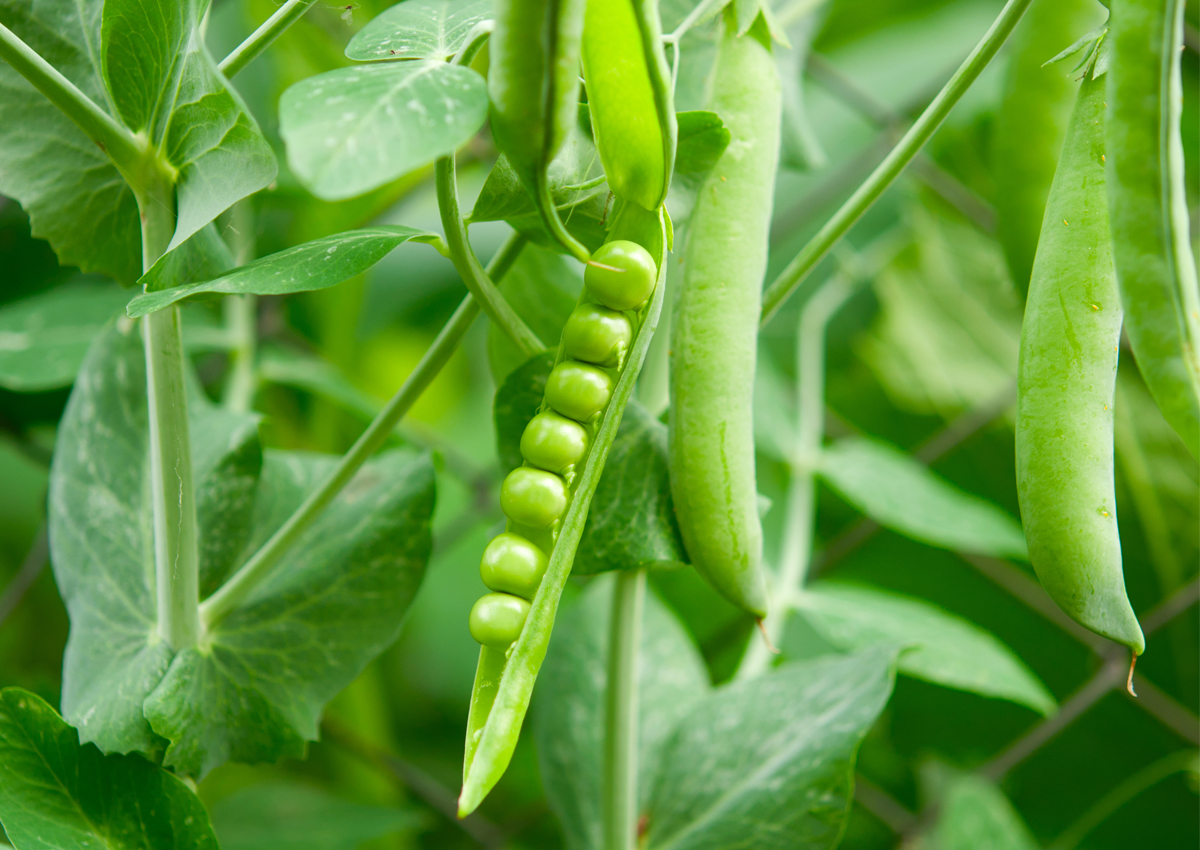
First Pea Genome to Help Improve Future Crops
September 11, 2019| |
An international team of researchers has assembled the first genome of the field pea, providing insight into how Mendel's original genetic model evolved and help future improvements of the crop. The study, published in Nature Genetics, has important implications for global nutrition and sustainability of crops. Pea is the second most important grain legume in the world after the common bean and is an important green vegetable.
According to Professors David Edwards and Jacqueline Batley from The University of Western Australia's School of Biological Sciences and Institute of Agriculture, the field pea had a much larger and more complex genome compared to other legumes. The sequencing project reveals the pea genome assembly spans 3.92 Gb, representing 88% of the estimated pea genome size of about 4.45 Gb.
Professor Batley said their research built on pioneering concepts of inheritance developed by Gregor Mendel. "With the pea genome sequenced, we can now start to understand the basis for the variation which has evolved," she said.
For more details, read the news article in the University of Western Australia website. The open access paper is available in Nature Genetics.
| |
You might also like:
- Genetic Map Reveals Heat Tolerance Traits in Peas
- Biotech a-Amylase Inhibitor Peas are Not Allergenic in Mice
- ISAAA Pocket K No. 15: 'Omics' Sciences: Genomics, Proteomics, and Metabolomics
Biotech Updates is a weekly newsletter of ISAAA, a not-for-profit organization. It is distributed for free to over 22,000 subscribers worldwide to inform them about the key developments in biosciences, especially in biotechnology. Your support will help us in our mission to feed the world with knowledge. You can help by donating as little as $10.
-
See more articles:
-
News from Around the World
- GM Crop Planting Increased ~113-fold Since 1996
- Burkinabe's National Biosafety Laboratory Opened
- Students Concerned about Future of Biotech Innovations in Uganda
- Discovery of Genes Could Help Reduce Fertilizer Pollution in Waterways
- Plant Enzyme Could Guide Development of Medicines and Other Products
- Half of Australians Give ‘Conditional Support' to GM foods, Study Reveals
- Utrecht Biologists Discover A Way to Make Plants Flood Tolerant
-
Research Highlights
- First Pea Genome to Help Improve Future Crops
- Scientists Investigate Grapevine's Population Genetics Using Structural Variants
-
Plant
- Use of CRISPR-Cas9 Revealed OsCAF1 Influences Chloroplast Development in Rice
-
Read the latest: - Biotech Updates (February 18, 2026)
- Gene Editing Supplement (January 28, 2026)
- Gene Drive Supplement (February 22, 2023)
-
Subscribe to BU: - Share
- Tweet

